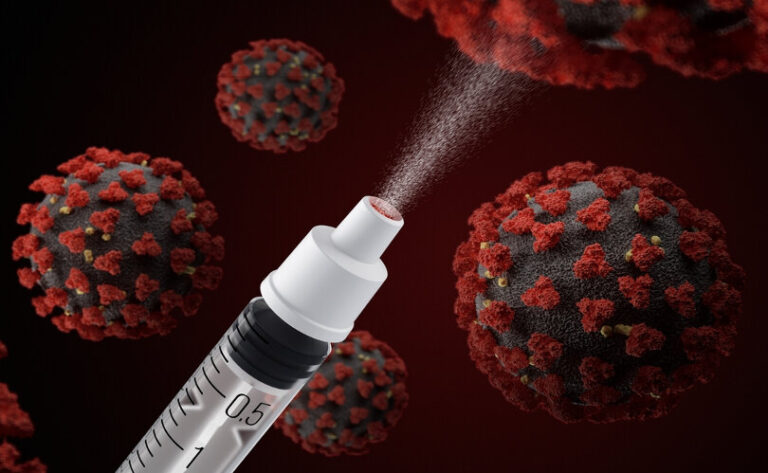US Military Confirms Myocarditis Spike After COVID Vaccine Introduction

Myocarditis cases among US service members increased after the COVID-19 vaccines were introduced in 2021, according to a top Pentagon official.
According to Gilbert Cisneros Jr., undersecretary of defense for personnel and readiness, who confirmed data revealed by a whistleblower earlier this year, there were 275 cases of myocarditis in 2021, a 151 percent increase from the annual average from 2016 to 2020.
The COVID-19 vaccines have the potential to cause myocarditis, a type of heart inflammation that can result in death, including sudden death. COVID-19 can also cause myocarditis.
The diagnosis information is sourced from the Defense Medical Epidemiology Database.
Mr. Cisneros provided the rate of cases per 100,000 person-years, a method of measuring risk over time. In 2021, the rate was 69.8 among those who had previously been infected, compared to 21.7 among vaccinated members.
“This suggests that it was more likely to be [COVID-19] infection and not COVID-19 vaccination that was the cause,” he said.
There were no figures provided for members who had been vaccinated but became infected. The total rate of 20.6 also indicates that some members were left out of the subgroup analysis.
Sen. Ron Johnson (R-Wis.), who has been investigating database issues, questioned how the military arrived at the figures.
“It is unclear whether or how it accounted for service members who had a prior COVID-19 infection and received a COVID-19 vaccination,” Mr. Johnson wrote in a letter to Mr. Cisneros.
Officials from the Department of Defense (DOD) did not respond to a request for comment.
Mr. Johnson requested the information by August 2.
Dr. Peter McCullough, president of the McCullough Foundation and a cardiologist, examined the newly disclosed data.
“The large increase in myocarditis cases in our military in 2021 was most likely due to ill-advised COVID-19 vaccination,” he explained via email to The Epoch Times, citing an Israeli study that found no increase in myocarditis in COVID-19 patients.
Other studies have discovered that COVID-19 vaccines increase the risk of myocarditis. COVID-19 has been linked to myocarditis in the past, but vaccines have never prevented infection and have become increasingly ineffective.
After US regulators cleared the vaccines for use in late 2020, the military encouraged COVID-19 vaccination. Military officials were among the first in the world to raise concerns about myocarditis following vaccination, publishing an early case series of 22 previously healthy members who developed myocarditis four days after receiving a COVID-19 vaccine. Officials in the United States have since stated that the vaccines do indeed cause myocarditis.
The vaccines were mandated by US Defense Secretary Lloyd Austin in 2021, and they remained in place until Congress forced their withdrawal.

Changes that are repeated
Officials from the military have struggled to provide accurate data on 2021 diagnoses.
Whistleblowers revealed in 2021 that myocarditis had increased 2,868 percent from 2016 to 2020, according to the Defense Medical Epidemiology Database (DMED). In August 2021, they downloaded the data.
When the data was downloaded later, the number of 2021 myocarditis diagnoses had dropped from 1,239 to 263, raising concerns about manipulation.
Military officials stated that they reviewed the data and discovered it to be “faulty.” They claimed that the data for the years 2016 to 2020 was “corrupted” during a “database maintenance process,” resulting in only 10% of the actual medical encounters for that time period being displayed.
In 2022, officials informed Mr. Johnson that the problem had been resolved. The fix had a significant impact on the records. Instead of a 2,181% increase in hypertension in 2021, the increase was only 1.9 percent. Female infertility increased 13.2 percent rather than 472 percent.
However, the updated percentages were called into question when another whistleblower examined the database in 2023 and discovered that they were different.
The military reduced the increase in testicular cancer from 369 percent to 3 percent. However, the whistleblower discovered that the actual increase was 16.3 percent. Pulmonary embolism was one of the conditions that occurred more frequently in 2021 than the military predicted.
Mr. Johnson, the top Republican on the Senate Subcommittee on Investigations, was alerted by the whistleblower and asked military officials for answers.
Mr. Cisneros admitted that the information provided to the senator was incomplete. He explained that the change was due to December 2021 figures not being available when the corrected data was presented. Mr. Cisneros said there was a data “lag by about three months,” which meant the data wasn’t available in February 2022, when officials provided Mr. Johnson with the corrected data.
Pentagon officials replicated the whistleblower’s analyses and discovered the data “are similar” to the data the whistleblower sent to Mr. Johnson, according to Mr. Cisneros.
Military officials had not previously mentioned any data lag while communicating with Mr. Johnson or the public, and when they sent him another missive in mid-2022, they did not incorporate the available data.
“Without the whistleblower’s disclosure, I doubt DOD would have ever acknowledged that it provided incomplete information to my office in February 2022 and again in July 2022,” Mr. Johnson said in a statement.
He claimed the DOD had shown “complete disregard for transparency” and urged officials to clarify whether they had investigated whether any of the medical conditions for which diagnoses had increased were linked to the vaccines.





